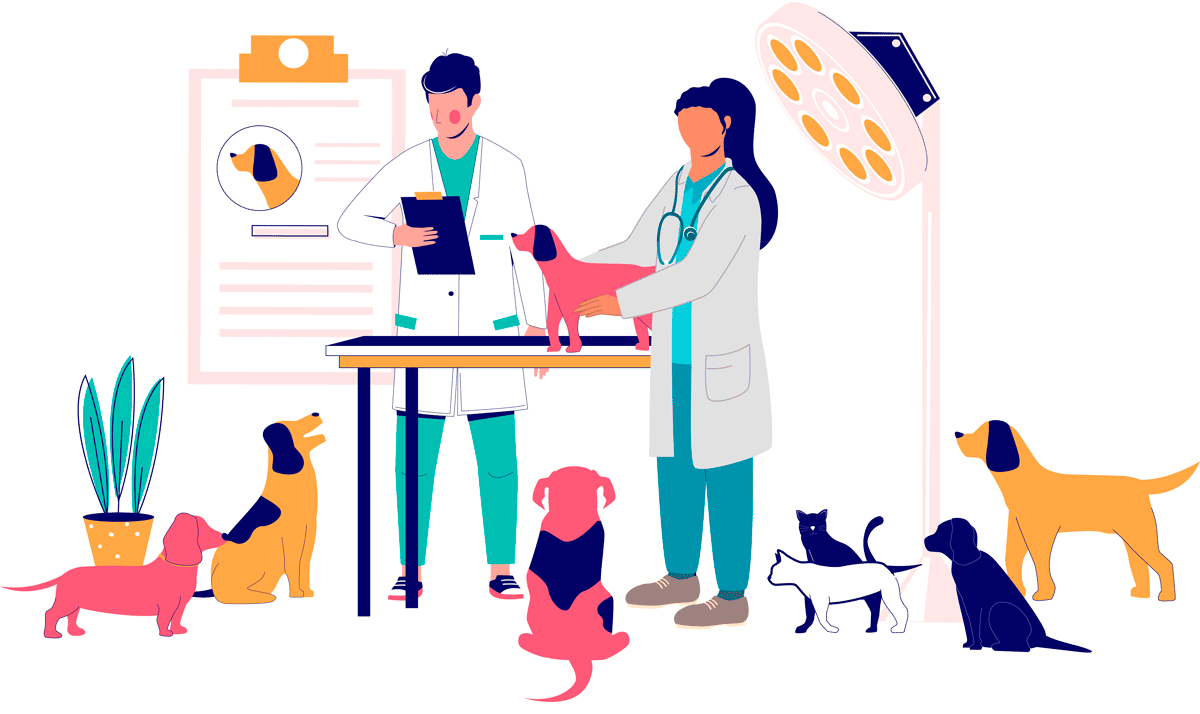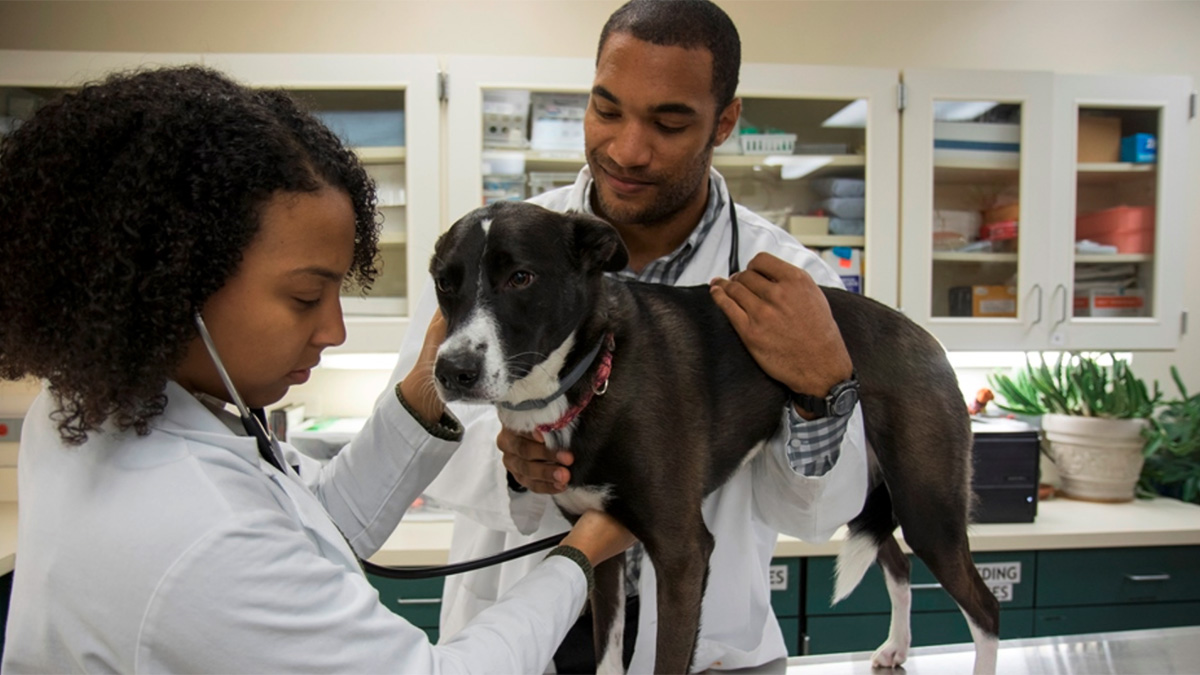Signs your pet needs a Veterinary Cancer Specialist consultation
Wiki Article
Comprehensive Overview to the Providers Provided by a Vet Oncologist
Veterinary oncology encompasses a vast range of services intended at identifying and treating cancer cells in pets. Pet Cancer Surgery. Oncologists utilize innovative diagnostic methods and supply various treatment alternatives tailored to every pet's needs. They likewise focus on encouraging care and offer beneficial resources for pet proprietors. Understanding these solutions is important for making notified choices. What certain aspects of vet oncology can especially influence a pet dog's therapy journey?Understanding Vet Oncology
Vet oncology is a specific field concentrated on treating and identifying cancer in pets. This technique includes a wide variety of techniques, from medical therapies such as radiation treatment and immunotherapy to medical interventions intended at removing lumps. Veterinary oncologists are educated to acknowledge the special symptoms of cancer in numerous varieties, enabling them to customize treatment strategies to private people.In addition to typical therapies, vet oncology highlights helpful treatment, which plays a necessary function in enhancing the lifestyle for damaged pets. This includes pain administration, dietary assistance, and palliative treatment alternatives. Partnership with pet owners is crucial, as they are indispensable to decision-making concerning their pets' therapy paths. As research advances, vet oncology continues to advance, offering brand-new hope and enhanced end results for pet dogs diagnosed with cancer. Overall, this area is fundamental for dealing with the intricacies of cancer in friend pets.
Advanced Diagnostic Techniques
Advanced diagnostic techniques play a necessary duty in vet oncology, offering critical insights right into the existence and degree of cancer cells in animals. Imaging modalities such as ultrasound, CT scans, and MRI are frequently utilized to envision growths and examine their characteristics. Additionally, biopsy treatments are very important for acquiring tissue samples, enabling definitive medical diagnosis and customized therapy strategies.Imaging Modalities Utilized
Imaging methods play an essential duty in the medical diagnosis and administration of cancer in pets. Veterinary oncologists use various sophisticated imaging techniques to assess tumor transition, size, and presence. Radiography, or X-rays, offers a preliminary view of bone and breast conditions, while ultrasound provides real-time imaging of soft tissues, enabling detailed evaluation of internal organs. Calculated tomography (CT) boosts visualization of complicated physiological frameworks and allows 3D restorations, assisting in accurate growth localization. Magnetic resonance imaging (MRI) is invaluable for soft tissue differentiation, specifically in brain lumps. Additionally, nuclear medication techniques such as positron exhaust tomography (ANIMAL) assistance identify metabolic task within lumps. Jointly, these methods improve diagnostic precision, assisting effective treatment approaches for oncological clients.Biopsy Treatments Clarified
Complying with the preliminary analysis via imaging methods, obtaining a definitive medical diagnosis often requires cells tasting through biopsy treatments. Veterinary oncologists make use of numerous biopsy techniques based on the tumor's place and attributes. Great needle goal (FNA) is a minimally invasive approach that removes cells for cytological assessment, suitable for surface masses. Core needle biopsies provide bigger tissue samples and serve for much deeper lumps, permitting histopathological evaluation. Surgical biopsies involve excising a section or the whole lump, helping with complete assessment. These treatments not just validate the visibility of cancer but likewise help identify its type and grade, guiding treatment choices. Each biopsy technique is picked carefully to stabilize analysis accuracy with client safety and convenience.Treatment Choices for Cancer in Pets
When a pet dog is detected with cancer, a variety of therapy choices appear to assist manage the condition and boost lifestyle. Vet oncologists generally suggest a multidisciplinary strategy tailored to the private pet's demands, which may consist of surgery, radiation treatment, immunotherapy, or alternate treatments.Surgical procedure is frequently employed to eliminate tumors and damaged tissues, potentially bring about total remission in some situations. Radiation therapy intends to target and damage cancer cells, lowering growth size and minimizing symptoms - Veterinary Oncologist. Immunotherapy harnesses the pet's immune system to eliminate cancer extra successfully, while alternate therapies could include acupuncture or natural supplements to sustain total health and wellness
Each therapy alternative lugs its own benefits and risks, and veterinary oncologists function carefully with pet dog owners to create a thorough strategy that lines up with the pet's details medical diagnosis and the proprietor's desires. The best objective is to boost the family pet's comfort and quality of life throughout their cancer cells journey.
Radiation treatment for Pets
Radiation treatment is an usual treatment choice for family pets diagnosed with cancer and is often used in combination with various other treatments described by veterinary oncologists. This therapy involves the management of certain drugs designed to destroy and target cancer cells, thereby decreasing tumor dimension and stopping the spread Board Certified Veterinary Oncologist of the condition. Vet oncologists tailor radiation treatment methods based upon the kind of cancer cells, the animal's general health, and the desired treatment end result.Side effects can occur, as these medications may additionally affect healthy and balanced cells. Usual reactions consist of nausea, throwing up, and temporary changes in cravings - Board Certified Veterinary Oncologist. Vet oncologists are outfitted to handle these side effects successfully, guaranteeing the pet's convenience throughout the therapy process. Routine surveillance through blood examinations and follow-up consultations is vital to examine the pet's reaction to radiation treatment and make necessary modifications. Eventually, radiation treatment can provide substantial advantages, boosting the lifestyle for animals facing cancer medical diagnoses

Radiation Treatment in Veterinary Medication
Radiation treatment works as a reliable treatment alternative for family pets diagnosed with localized lumps, providing a targeted strategy to cancer management. This method utilizes high-energy radiation to harm the DNA of cancer cells, inhibiting their capability to multiply. It is especially beneficial for growths that are not responsive to surgical elimination or for situations where surgery might not be possible because of the tumor's place.Vet oncologists customize radiation methods based upon lump dimension, place, and type, as well as the pet dog's overall health and wellness. Therapy can be delivered by means of external beam of light radiation or brachytherapy, each with distinctive advantages. Usually, numerous sessions are required to make best use of effectiveness while lessening side effects.
Pet dogs might experience short-lived responses such as skin irritation, the overall objective is to shrink tumors and reduce symptoms, ultimately improving the pet's prognosis and quality of life. Accordingly, radiation therapy plays an important role in extensive cancer cells care.
Palliative Care and Lifestyle
Palliative care in vet oncology concentrates on boosting the lifestyle for animals facing incurable illnesses, guaranteeing comfort and dignity in their final days. This specialized method prioritizes pain management, signs and symptom control, and emotional support. Vet oncologists evaluate each animal's specific demands, tailoring treatments to relieve discomfort and enhance total health.Techniques might include administering drugs for discomfort relief, taking care of nausea or vomiting, and attending to other traumatic signs. In addition, dietary assistance is frequently provided to preserve strength and improve cravings. The emotional facet of palliative care is similarly vital; developing a tranquil environment helps in reducing anxiety for both pet dog and proprietor.
Ultimately, the objective of palliative treatment is to enable pets to appreciate their staying time with as much delight and self-respect as possible. By concentrating on convenience and lifestyle, vet oncologists play an essential function in making sure that pets and their households browse this challenging trip with concern and understanding.
Assistance for Pet Owners During Treatment

Psychological Advice for Owners
Charting the emotional landscape during a family pet's cancer cells therapy can be a frustrating experience for proprietors. The unpredictability bordering diagnosis and prognosis can result in sensations of anxiousness, despair, and helplessness. Veterinary oncologists identify the value of emotional assistance and usually provide support to aid owners browse this difficult journey. Communication is vital; reviewing therapy options and potential results can ease some anxieties. In addition, offering reassurance that psychological actions stand fosters an encouraging setting. Lots of oncology facilities might additionally recommend support system or counseling services tailored for pet owners, facilitating shared experiences. Urging owners to focus on self-care throughout this time around is crucial, as their emotional well-being straight affects their pet's comfort and overall treatment experience.
Resources and Educational Products
Steering via the complexities of a pet's cancer cells treatment can be intimidating for proprietors, making access to academic materials and trustworthy resources crucial. Vet oncologists frequently give a variety of handouts, brochures, and online products that explain therapy options, prospective negative effects, and care approaches. These resources assist empower and debunk the process animal proprietors to make enlightened decisions. In addition, many oncology clinics use accessibility to support teams and forums where owners can get in touch with others dealing with similar difficulties, cultivating a feeling of community. Educational webinars and workshops carried out by vet specialists even more improve understanding, ensuring that owners are well-equipped to browse their pet dog's journey through cancer cells therapy with confidence and understanding.Often Asked Concerns
Just How Can I Prepare My Pet for a Vet Oncology See?
Preparing a pet for a veterinary oncology go to involves event medical records, noting signs, and making certain the pet dog is comfortable. A tranquil disposition and acquainted things can aid reduce anxiety during the appointment.What Are the Signs My Pet May Have Cancer?
Signs that an animal may have cancer include unexplained weight management, relentless throwing up or looseness of the bowels, uncommon lumps or swellings, lethargy, changes in appetite, difficulty breathing, and alterations in actions. Motivate vet interest is necessary.Exactly How Can I Support My Pet Emotionally Throughout Therapy?
Sustaining a family pet psychologically throughout treatment involves giving convenience, maintaining regimens, using mild affection, and guaranteeing a calm setting. Taking part in peaceful play and regular friendship assists reduce stress and promotes a feeling of safety.Exist Alternate Therapies for Family Pets With Cancer?
Alternate treatments for animals with cancer cells include acupuncture, herbal treatments, and dietary support. These strategies may enhance traditional therapies, promoting overall well-being. Consulting with a vet is crucial for reliable and safe assimilation of alternative treatments.What Costs Should I Anticipate for Vet Oncology Services?
The awaited costs for vet oncology solutions can vary substantially, often affected by diagnostics, treatments, and recurring treatment. Pet dog owners must plan for expenses ranging from examinations to specialized treatments, reflecting the complexity of cancer cells administration.Partnership with pet dog owners is important, as they are indispensable to decision-making regarding their animals' treatment paths. Each treatment choice lugs its own benefits and dangers, and vet oncologists function carefully with animal owners to design a complete strategy that lines up with the animal's specific medical diagnosis and the proprietor's wishes. Pet dogs might experience short-term reactions such as skin inflammation, the general objective is to reduce lumps and ease signs and symptoms, inevitably boosting the pet's diagnosis and top quality of life. Support for pet dog owners throughout treatment is crucial in guiding through the emotional challenges linked with an animal's cancer diagnosis. Preparing an animal for a vet oncology visit includes event clinical documents, keeping in mind signs, and making certain the pet dog is comfy.
Report this wiki page